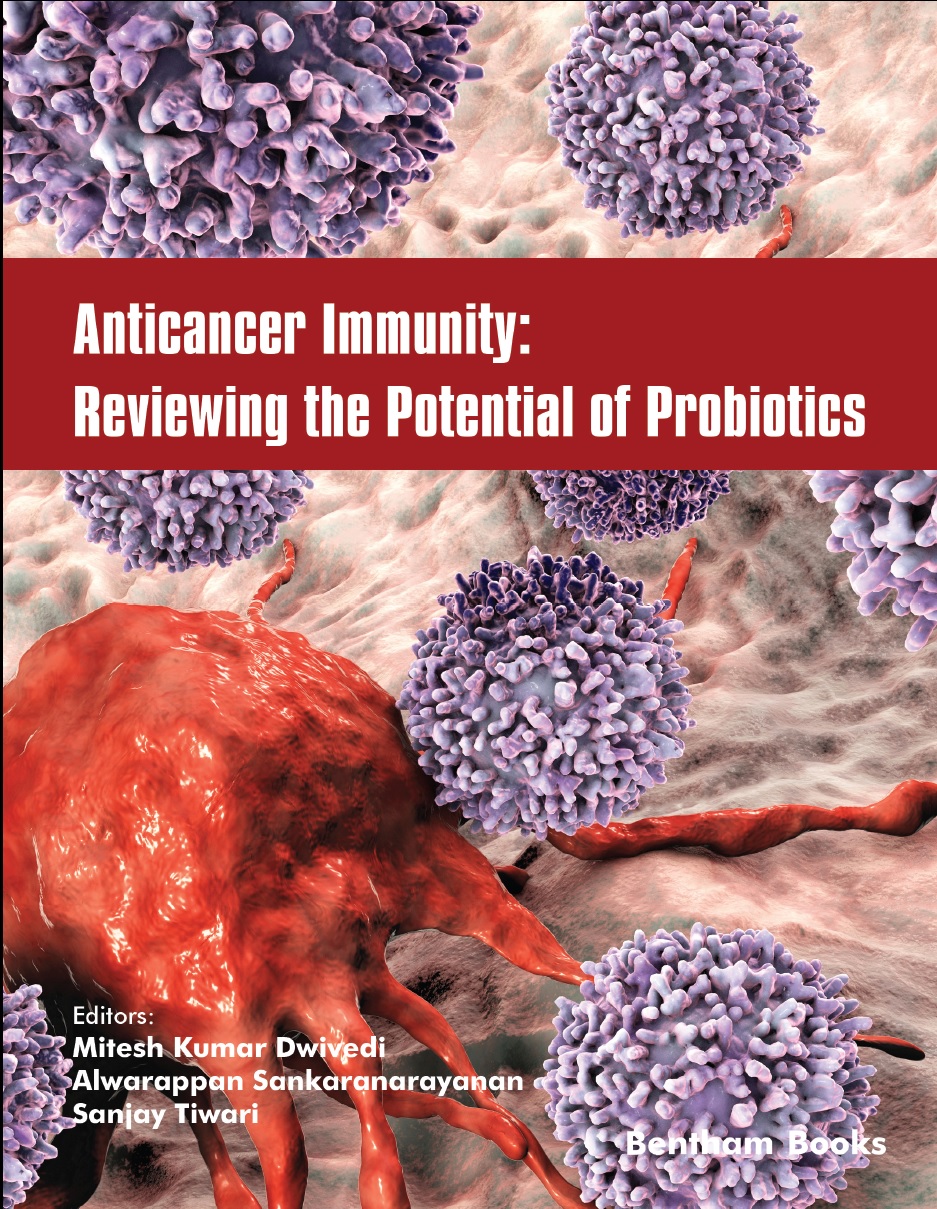Probiotics-based Anticancer Immunity in Thyroid Cancer

- Authors: Tamilkani Pichai1, Kalaiselvi Selvaraj2, Karnan Muthusamy3, Steffi Pulikondan francis4, Ramachandran Chelliah5, Kaliyan Barathikannan6, Mishel Pulikondan francis7, Panneerselvam Annamalai8, Deog Hwan Oh9, Vijayalakshmi Selvakumar10
-
View Affiliations Hide Affiliations1 Department of Hospital Administration, Queens College of Arts and Science for Women; Punalkulam, Pudukkottai (Dt), Tamil Nadu, India 2 Department of Microbiology, Government Arts and Science College (W), Orathanadu, Tamil Nadu, India 3 Grassland and Forage Division, National Institute of Animal Science, South Korea 4 Department of Microbiology, Cauvery College for Women, Tiruchirappalli, Tamil Nadu, India 5 Food Science and Biotechnology, School of Agriculture and Life Sciences, Kangwon National University, Chuncheon, Republic of Korea 6 Food Science and Biotechnology, School of Agriculture and Life Sciences, Kangwon National University, Chuncheon, Republic of Korea 7 Department of Microbiology, Cauvery College for Women, Tiruchirappalli, Tamil Nadu, India 8 P.G. and Research Department of Microbiology, A. V. V.M. SriPushpam College, Poondi, Tamil Nadu, India 9 Food Science and Biotechnology, School of Agriculture and Life Sciences, Kangwon National University, Chuncheon, Republic of Korea 10 Food Science and Biotechnology, School of Agriculture and Life Sciences, Kangwon National University, Chuncheon, Republic of Korea
- Source: Anticancer Immunity: Reviewing the Potential of Probiotics , pp 102-117
- Publication Date: June 2023
- Language: English
Cancer is one of the major diseases that seriously endanger human health worldwide. The risk of developing cancer depends on genetic factors and the body's immune system. The intestinal microbiome plays an essential role in maintaining homeostasis in the human body. After cardiovascular disease, the second-largest illness in terms of morbidity and mortality rate is cancer. Cancer has always been the focus of human attention worldwide, which makes it a research hotspot in the medical field. In recent years, the consumption of probiotics has been fetching in health-promoting foods for humans, therapeutic, prophylactic and growth supplements for animal production and human health. In medicine, various studies have demonstrated that probiotics can help in improving the immune system and intestinal health and the effect of probiotic therapy on antitumor treatment-related side effects; combined use of probiotic strains did have a positive protective effect for patients with specific immune function. Healthy gut microbiota has positive impacts not just on immune system activity but also on thyroid function. Dysbiosis has been detected in autoimmune thyroid diseases (AITD) and thyroid cancer, where many carcinogenic and inflammatory bacterial strains were found. The nature of the gut microbiome also influences the availability of important micronutrients for the thyroid gland. Iodine, iron, and copper are required for thyroid hormone synthesis, selenium and zinc are required for T4 to T3 conversion, and vitamin D aids in immune response regulation. These micronutrients are frequently lacking in AITDs, and lead to thyroid dysfunction. Thyroid-stimulating hormone (TSH) and T3 levels may fluctuate due to bariatric surgery, resulting in insufficient absorption of essential nutrients. Probiotic supplementation positively affected thyroid hormones and thyroid function in general. This chapter summarizes the role, mechanism of probiotics, clinical trials and effects of probiotics in thyroid cancer.
-
From This Site
/content/books/9789815165135.chap5dcterms_subject,pub_keyword-contentType:Journal -contentType:Figure -contentType:Table -contentType:SupplementaryData105

